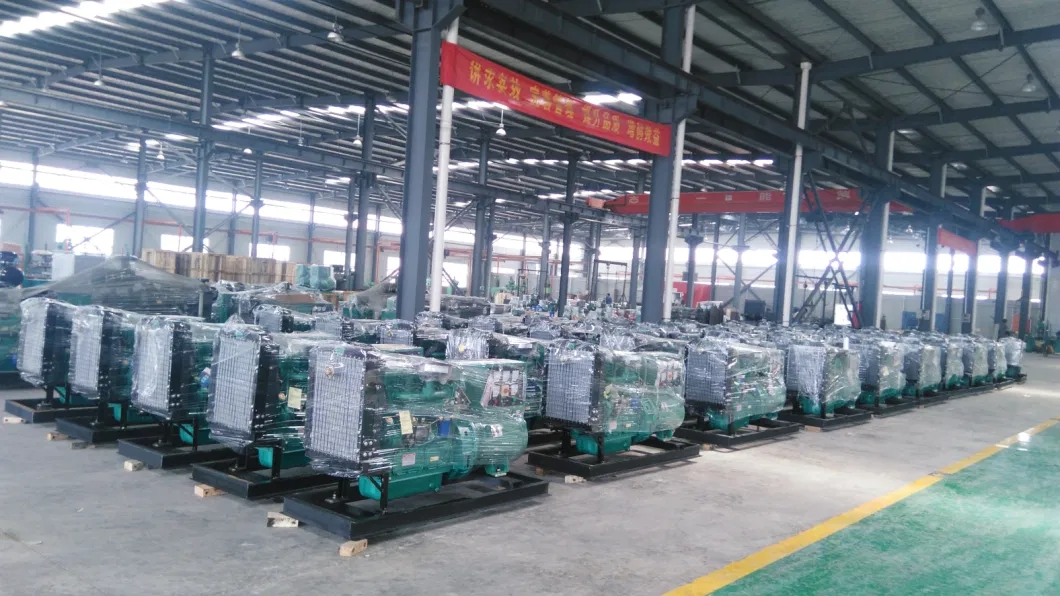Safety regulations for installing a 400kW generator play a vital role in providing backup power during emergencies or in off-grid locations where a stable power supply is not readily available. Despite their importance, diesel generators are known for their relatively high levels of fuel consumption and emissions, making them less environmentally friendly compared to other power generation options. In recent years, there has been a growing emphasis on enhancing the efficiency standards of diesel generators to reduce their environmental impact and operational costs. This article explores the importance of efficiency standards for diesel generators, the factors influencing their efficiency, and the latest advancements in technology aimed at improving their performance.
Importance of Efficiency Standards for Diesel Generators
Efficiency standards for diesel generators are crucial for several reasons. Firstly, improving the efficiency of these generators can lead to significant cost savings for users. Diesel fuel is a major operational expense for generators, and by enhancing efficiency, users can reduce their fuel consumption and overall operating costs. Additionally, higher efficiency means that diesel generators can produce more power output for a given amount of fuel input, making them more reliable and effective in meeting power demands.
Furthermore, enhancing the efficiency of diesel generators can help reduce their environmental impact. Diesel generators are known for their high levels of greenhouse gas emissions, including carbon dioxide and nitrogen oxides, which contribute to air pollution and climate change. By improving efficiency standards, diesel generators can operate with lower emissions, thereby mitigating their environmental footprint.

Factors Influencing Efficiency of Diesel Generators
Several factors influence the efficiency of diesel generators, including engine design, fuel quality, operating conditions, and maintenance practices. Engine design plays a critical role in determining the efficiency of a diesel generator. Modern engines with advanced combustion technologies, such as common rail fuel injection and variable geometry turbocharging, are more efficient than older engine designs. These technologies help optimize fuel combustion and reduce energy losses, resulting in higher overall efficiency.
Fuel quality is another important factor that affects the efficiency of diesel generators. Low-quality fuels containing impurities or high levels of sulfur can lead to incomplete combustion, increased engine wear, and reduced efficiency. Using high-quality, low-sulfur diesel fuel is essential for maximizing the efficiency of diesel generators and prolonging their lifespan.
Operating conditions also play a significant role in determining the efficiency of diesel generators. Factors such as ambient temperature, altitude, load profile, and maintenance intervals can impact the performance of a generator. Operating a diesel generator under optimal conditions, such as maintaining proper coolant and oil levels, ensuring adequate ventilation, and operating at optimal load levels, can improve its efficiency and reliability.
Lastly, regular maintenance is essential for ensuring the efficiency of diesel generators. Routine maintenance tasks, such as cleaning air filters, inspecting fuel injectors, and monitoring coolant levels, are crucial for preventing performance degradation and maximizing efficiency. Neglecting maintenance can lead to increased fuel consumption, higher emissions, and potential breakdowns, ultimately reducing the overall efficiency of the generator.
Advancements in Technology for Improving Efficiency
In recent years, significant advancements have been made in technology aimed at improving the efficiency of diesel generators. These advancements focus on enhancing engine performance, optimizing fuel consumption, and reducing emissions. Some of the key technologies that have contributed to improving the efficiency of diesel generators include:
1. Variable Speed Generators: Variable speed generators adjust their engine speed based on the power demand, allowing them to operate more efficiently across a wider range of loads. By varying the engine speed, these generators can match the power output to the load requirement more effectively, resulting in higher overall efficiency.
2. Hybrid Systems: Hybrid diesel generators combine diesel engines with energy storage systems, such as batteries or capacitors, to optimize power delivery and reduce fuel consumption. These systems use the energy stored in the storage devices during periods of low demand, allowing the diesel engine to operate at its most efficient load levels.
3. Electronic Control Units (ECUs): ECUs are advanced electronic devices that monitor and control various engine parameters, such as fuel injection timing, air-fuel ratio, and exhaust gas recirculation. By optimizing these parameters in real time, ECUs can improve fuel efficiency, reduce emissions, and enhance overall engine performance.
4. Exhaust Gas Aftertreatment Systems: Exhaust gas aftertreatment systems, such as diesel particulate filters (DPF) and selective catalytic reduction (SCR) units, help reduce emissions from diesel generators by capturing and neutralizing harmful pollutants. By installing these systems, diesel generators can comply with stringent emission regulations while maintaining high efficiency levels.
5. Waste Heat Recovery Systems: Waste heat recovery systems capture and utilize the heat generated during the combustion process to produce additional power or provide heating for other applications. By recovering waste heat, diesel generators can improve their overall efficiency and reduce fuel consumption.
Conclusion
Efficiency standards for diesel generators are essential for reducing fuel consumption, lowering emissions, and improving overall performance. Factors such as engine design, fuel quality, operating conditions, and maintenance practices play a crucial role in determining the efficiency of diesel generators. By implementing advancements in technology, such as variable speed generators, hybrid systems, electronic control units, exhaust gas aftertreatment systems, and waste heat recovery systems, significant improvements can be made in the efficiency of diesel generators. Moving forward, continued efforts to enhance efficiency standards for diesel generators will be vital in promoting sustainable and cost-effective power generation solutions.

0sem comentários ainda